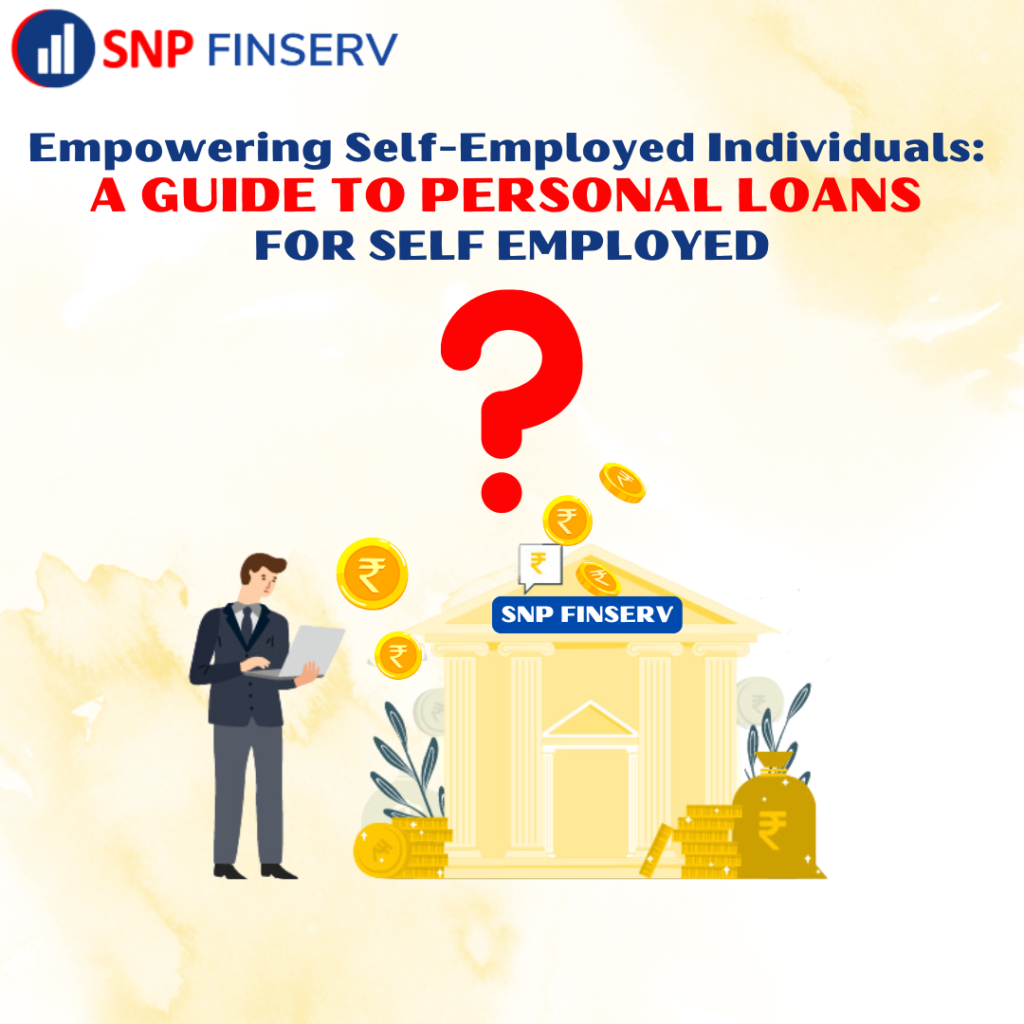
1. Understanding Eligibility Criteria for Self-Employed Individuals
- Minimum Age: Most lenders require applicants to be between 21-60 years of age at the time of application.
- Business Continuity: Generally, lenders prefer applicants who have been in business for at least 2-3 years. This ensures that the borrower has a proven track record of generating income.
- Income Verification: Since self-employed individuals don’t have a regular salary slip, lenders will ask for alternative proof of income, such as:
- ITR (Income Tax Returns) for the last 2-3 years.
- Profit and Loss Statements (P&L) and Balance Sheets (for business owners).
- Bank Statements for at least 6 months to show consistent cash flow.
- GST Returns (if applicable) to prove business transactions.
- Credit Score: A good CIBIL score (preferably above 750) is crucial. A strong credit score reflects financial discipline, making it easier to get approved for personal loans.
2. Loan Amount and Interest Rates
- Loan Amount: The loan amount you can avail of will depend on your income, business performance, and credit score. Typically, lenders may offer amounts ranging from ₹50,000 to ₹30 lakh or more for personal loans.
- Interest Rates: Personal loan interest rates for self-employed individuals may be slightly higher than for salaried individuals due to the perceived higher risk. Rates can range between 10% to 25% depending on your credit score and financial profile.
- Processing Fees: Most banks and NBFCs charge a processing fee that can range from 1% to 2% of the loan amount.
3. Documentation Required for Personal Loan Application
For self-employed individuals, the documentation process is more detailed. Commonly required documents include:
- Proof of Identity: Aadhar card, PAN card, or passport.
- Proof of Address: Utility bills, bank statements, or rental agreements.
- Income Proof:
- Last 2-3 years of ITR.
- Profit and Loss (P&L) statements for businesses, or audited financials.
- Bank Statements for 6 months.
- GST Returns, if applicable.
- Business Continuity Proof:
- Business registration documents (e.g., Partnership deed, GST registration, etc.).
- Trade License or any other certificate proving the existence of the business.
4. Factors Lenders Consider for Self-Employed Applicants
Lenders assess several factors when considering a personal loan application from a self-employed individual:
- Income Stability: Lenders will look for steady business income over the past 2-3 years to gauge your ability to repay the loan.
- Debt-to-Income Ratio (DTI): The ratio of your existing debt to your income is a key factor in determining loan eligibility. A high DTI may make it harder to secure a loan or lead to a lower loan amount.
- Credit History: A strong credit score indicates that you are responsible with your finances and have a history of repaying loans on time.
- Business Cash Flow: Lenders may review your bank account statements to ensure your business generates enough cash flow to service a personal loan.
5. Personal Loan for Business Expenses vs. Personal Expenses
Self-employed individuals often need loans for both business and personal purposes. It’s important to understand the distinction:
- Business Loans: If you need funds for business expansion, working capital, or other business-related expenses, you may consider a business loan instead of a personal loan. Business loans often have higher borrowing limits and lower interest rates.
- Personal Loans: If you need funds for personal purposes like home renovation, medical expenses, or education, a personal loan can be a more flexible option. However, since it is not tied to business use, the lender may require you to demonstrate stable personal income.
6. Choosing the Right Lender
- Banks vs. NBFCs: Both traditional banks (e.g., SBI, HDFC, ICICI) and NBFCs (e.g., Bajaj Finserv, Tata Capital) offer personal loans to self-employed individuals.
- Banks usually offer lower interest rates but have stricter eligibility criteria.
- NBFCs may be more flexible but could charge higher interest rates.
- Online Lenders: Fintech platforms (e.g., Cred, Lendingkart) also offer personal loans to self-employed individuals. These lenders typically provide faster approval with less documentation but may charge higher interest rates.
- Pre-Approval Process: Many lenders offer pre-approval to self-employed applicants based on basic financial details. This gives you an estimate of the loan amount, interest rates, and EMI.
7. Repayment Terms
- Loan Tenure: Personal loans for self-employed individuals generally range from 1 year to 5 years.
- EMI Calculation: Your EMI will be calculated based on the loan amount, tenure, and interest rate. Ensure that your business’s cash flow can comfortably handle the monthly EMI payments.
- Early Repayment: Most lenders allow prepayment or early repayment of the loan, but it may come with additional fees. Ensure you check the terms before taking the loan.
8. Tips to Improve Loan Eligibility
- Maintain Good Financial Records: Keep accurate and updated financial records, including tax returns, profit and loss statements, and bank statements.
- Increase Your Credit Score: Paying off existing debts, clearing credit card balances, and reducing overdue payments can help improve your CIBIL score.
- Stable Cash Flow: Ensure that your business has consistent cash flow and avoid any major disruptions in revenue generation.
- Co-Applicant Option: If your income is irregular or you’re just starting a new venture, consider adding a co-applicant (like a spouse or family member) to increase your chances of approval.
9. Alternatives to Personal Loans for Self-Employed Individuals
- Business Loans: If you need funds for business growth, a business loan might be a better option. These loans are specifically designed for self-employed individuals and offer larger amounts with better terms.
- Secured Loans: If you have assets such as property or gold, you may opt for a secured personal loan or loan against property to get a larger loan at lower interest rates.
- Line of Credit: A business line of credit could provide more flexibility for self-employed individuals with variable income needs.
